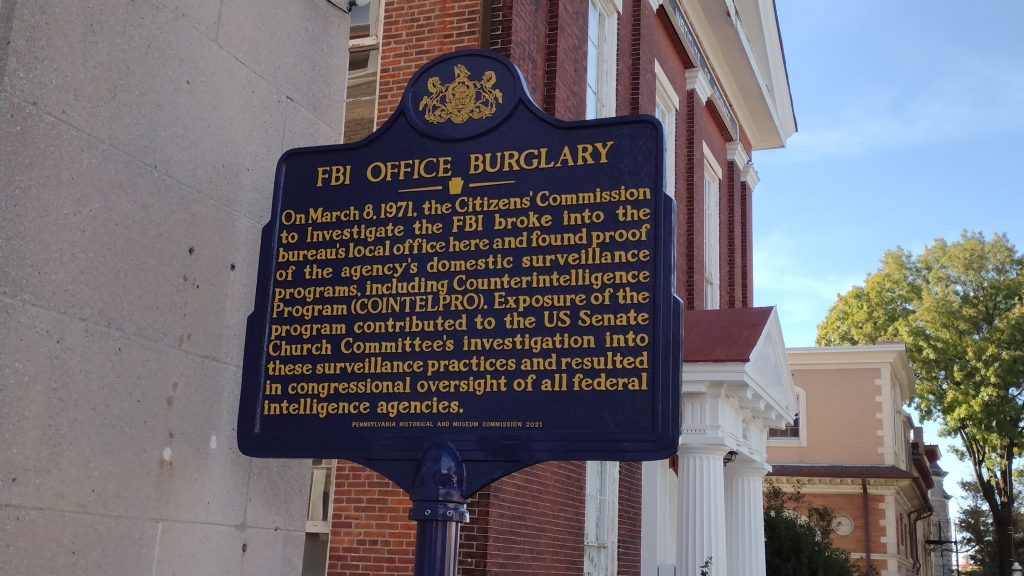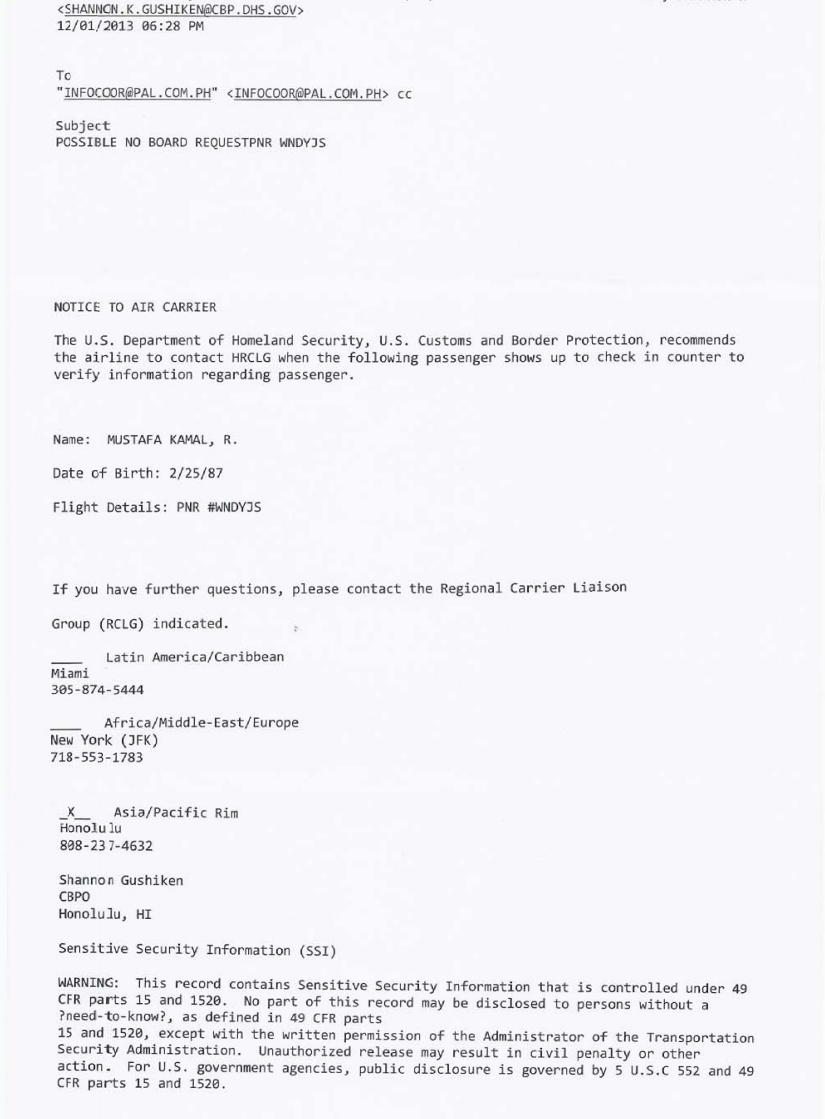Government finally admits plaintiff was on the “no-fly” list
A month and half after the conclusion of the first trial in any case challenging the US government’s “no-fly” list, and more than a week after Judge William Alsup’s decision that the rights of the plaintiff in the case, Dr. Rahinah Ibrahim, were violated, the government has finally admitted explicitly and publicly that:
- Dr. Ibrahim was, in fact, on the US government’s “no-fly” list, which was shared with, among other entities, the Canadian and Australian governments. (There’s no mention of sharing of these lists with the UK or other European Union countries, perhaps because vetting against watchlists and blacklists of passengers on flights to, from, and within the EU is carried out by DHS employees posted in the EU, rather than by European governments.)
- After being removed from the “no-fly” blacklist or blocklist, Dr. Ibrahim was placed on a government watchlist (included in the same database with the no-fly list) with a “handling code… allowing law enforcement officers to ask the individual probing but non-alerting questions, and search[] the individual’s passport.” While the “no-fly” list has often been incorrectly and euphemistically described as a “watchlist”, the treatment of Dr. Ibrahim, and these detailed admissions in particular, makes clear that the government itself distinguishes blacklisting/blocking (travel control) and watchlisting (travel surveillance) as different, although related, functions.
- The watchlist entry for Dr. Ibrahim included “entry criteria codes” signifying “Corroborated identification as a group member by an informant or individual of unknown reliability” and “Frequents a documented group’s area, associates with known group members, and/or affects group dress, hand signals, tattoos, or symbols.” There’s still no public indication of the basis for these (false) conclusions. The FBI agent who “nominated” Dr. Ibrahim for inclusion on the “no-fly” list did so “mistakenly”. From the latest redacted filings and prior statements in open court, it appears that the agent thought he was filling out the form to nominate Dr. Ibrahim for mere watchlisting rather than inclusion on the “no-fly” blacklist/blocklist.
- In closed court, “Agent Kelley testified that until his deposition on September 12, 2013 he had never had a watchlist nomination rejected and that in answer to the question ‘you had also never heard of anyone else having a watchlist nomination rejected?’ he answered ‘no.'” This belies the government’s claims that the basis for each such “nomination” is carefully reviewed before a name is added to a blacklist or watchlist.
Of course, Dr. Ibrahim already knew she was on the “no-fly” list, since but for her listing on this US government blacklist she wouldn’t have been denied boarding on her flight and arrested at SFO in 2005. But until now, both before and throughout the trial, the government refused to confirm this fact publicly, and claimed that it could not do so (or tell Dr. Ibrahim her current status on any blacklist or watchlist) without jeopardizing national security.
These admissions came in snippets between redacted passages in government briefs belatedly filed today in response to Judge Alsup’s latest reiteration of his standing orders for filing of public summaries or redacted versions of all pleadings and declarations filed “under seal” in the case.
The briefs filed today by the government defendants were due this past Friday, but were filed today with a declaration that the government’s lawyers (despite being located in the same building as the clerk’s office, where they could have filed them over the counter) were unable to file them on Friday due to technical problems with the court’s electronic document handling system:
- Notice of Compliance with Court’s January 15, 2014 Order
- Defendants’ Post-Trial Proposed Findings of Fact and Conclusions of Law [redacted]
- Defendants’ Response to Plaintiff’s Post-Trial Proposed Findings of Fact and Conclusions of Law [redacted]
- Defendants’ Response to the Court’s Order Regarding Plaintiff’s Response Regarding Plaintiff’s Daughter [redacted]
- Declaration of Paul G. Freeborne Attesting to Technical Failure of Electronic Case Management System
A public redacted version of one more document previously filed only under seal, a declaration from the Director of the CBP National Targeting Center concerning what happened to Dr. Ibrahim’s daughter, a US citizen who was denied boarding when she tried to fly to the US to attend and testify at her mother’s trial, is due to be filed by the government tomorrow. There’s still been no public explanation of what, if any, valid basis US Customs and Border Protection (CBP) could have had for telling airlines that a US citizen might not be admitted to the US.


